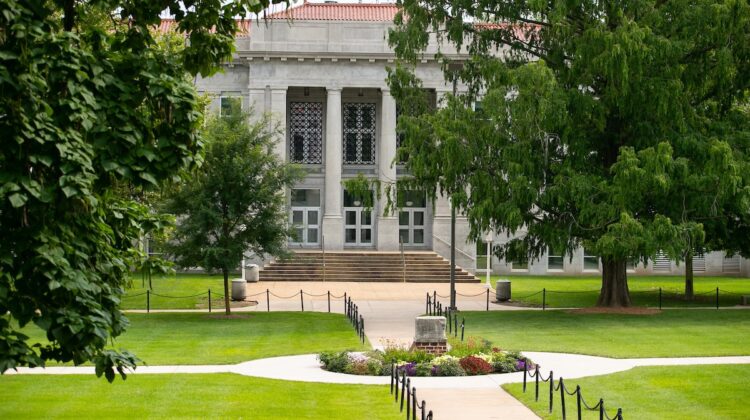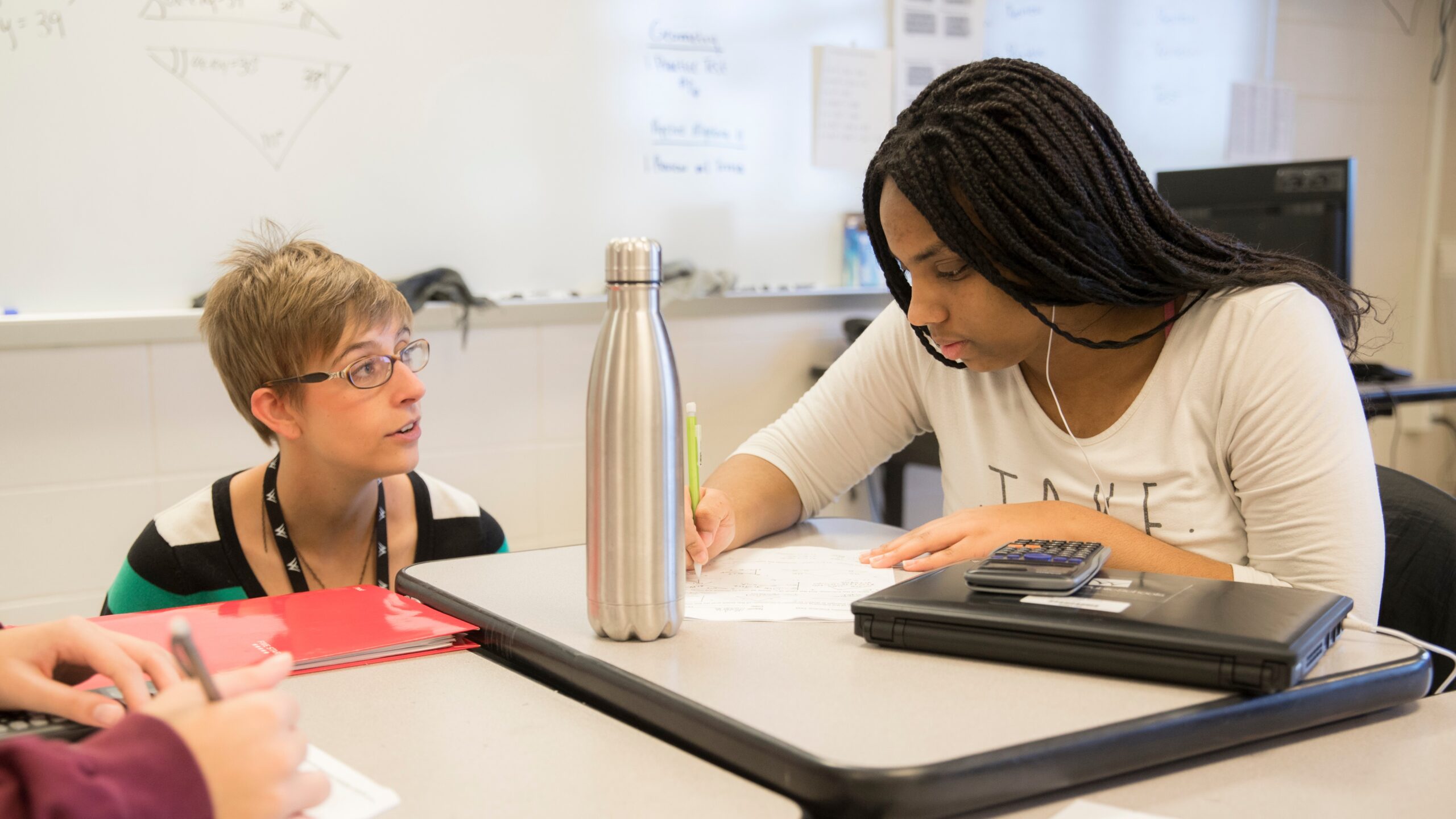Imagine walking down a sidewalk, getting on a bus or boarding a plane.
Now imagine accomplishing them without sight.
Missouri State University’s orientation and mobility (O&M) program trains students how to assist individuals with visual impairments. This includes providing individuals with the tools and experience they need to navigate the world independently.
Missouri State also offers the blindness and low vision teacher education (B&LV) program. The program ensures that teachers can provide the accommodations necessary for students with visual impairments to excel in the classroom.
“Blindness and low vision are low incidence disabilities, so they can get pushed aside,” Dr. Shari Scott, B&LV program coordinator, said.
“Even if you have just one person who needs Braille or access to large print, it’s worth providing that support.”
The O&M and the B&LV programs at MSU recently received national accreditation from the Association for Education and Rehabilitation of the Blind and Visually Impaired (AERBVI).
The difference access can make
Providing visually impaired students with accommodations in the classroom is crucial to allowing them to participate in everyday life.
Dr. Christopher Craig, deputy provost at MSU, learned this at a young age when attending the Missouri School for the Blind. He credits the school with much of his success in discovering how to navigate his environment despite his visual impairment.
“Part of what I’ve been able to do in my life, including being deputy provost, is because I had a strong skill base for learning how to cope and communicate,” Craig said. “Every kid deserves to be taught reading by a qualified teacher.”
The blind and low vision certification ensures that students with visual impairments can manage classroom materials like textbooks, course websites and other media that is consumed visually.
As the skills needed for success go beyond the classroom, the orientation and mobility program covers everything from cane skills to public transportation and metro travel.
To get an O&M certification, students spend more than 20 hours under a blindfold learning the skills they will be teaching to individuals with visual impairments.
“Even if someone can read Braille and access the world digitally, they may not feel comfortable hopping on a plane and going to Brazil,” Scott said. “Learning orientation and mobility opens up the world.”
A broader vision
Craig began developing these programs at MSU with the hope that they would produce the specialized instructors needed to better serve people with visual impairments.
“I started this program in Missouri because there were children with visual impairments who needed greater care. They weren’t learning Braille, communication skills or how to use assistive technologies,” Craig said.
“There also was nothing in Missouri to help these children learn how to physically get around.”
With proper accommodations, people with visual impairments can meet their full potential alongside their sighted peers.
“Having a job brings self-fulfillment and self-actualization,” Scott said. “If you have a sensory deprivation, such as hard of hearing or blindness, you can benefit from a specialized instructor to help you navigate functional skills.
“One of my former students was the first blind student to go to Columbia University in New York. The things he is doing in journalism today are totally amazing.”
MSU is bringing these necessities to students who need them, providing opportunities for them that would otherwise be inaccessible.
“This is bigger than just the university,” Scott said. “The K-12 kids in Missouri who don’t have instructors are front and center for us, but preparing specialized instructors goes beyond that. We are part of a global endeavor to improve accessibility.”
About the accreditation
While the B&LV program receives its teacher-certifying credentials from the Missouri Department of Elementary and Secondary Education (DESE), the AERBVI accreditation endorses the program as effective preparation.
For the O&M program, the AERBVI is the certifying body. The accreditation allows for students in MSU’s O&M program to graduate fully licensed.
MSU is one of just 12 universities with an accredited O&M program across the United States.





